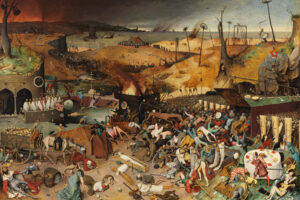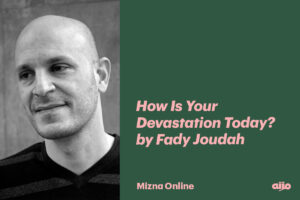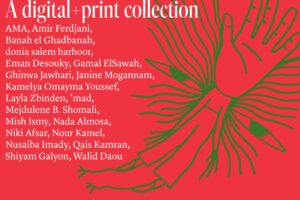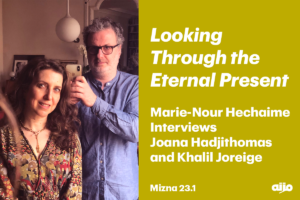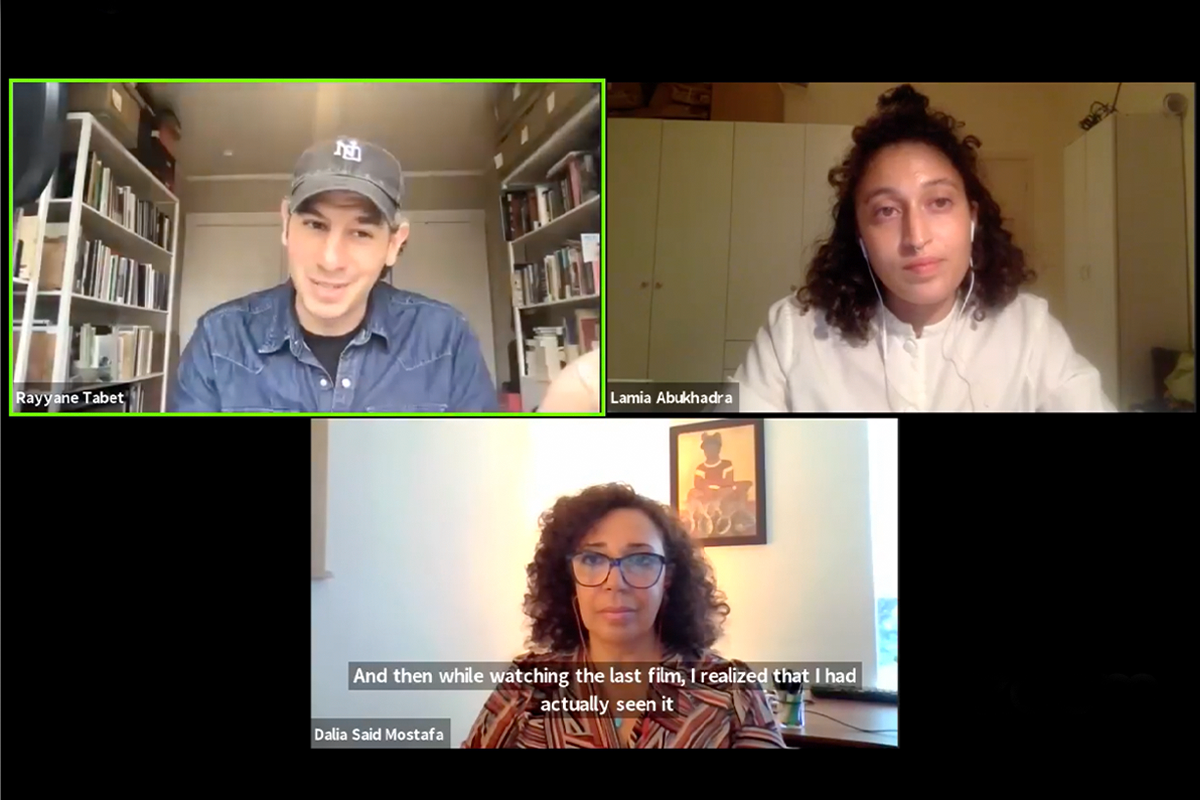
August 2, 2021
Letters from Beirut: Discussion with Rayyane Tabet and Dalia Said Mostafa
In conjunction with our Beirut-focused summer film series, Mizna presents a discussion on Lebanese aesthetics and the legacy of Jocelyne Saab with artist Rayyane Tabet and scholar Dr. Dalia Said Mostafa. This discussion will be moderated by artist and writer Lamia Abukhadra.
This virtual discussion took place Friday, July 30, 2021 at 12pm CT.
ABOUT THE PARTICIPANTS

Dr. Dalia Said Mostafa is a Lecturer in Arabic and Comparative Literature at the University of Manchester. She has published widely on contemporary Arabic literature, Middle Eastern Cinema, and Popular Culture in Egypt. She has a special interest in Lebanese literature and cinema and has published several academic articles and book chapters on this subject, including a book chapter on the works of the Lebanese filmmaker Jocelyne Saab (in Ten Arab Filmmakers: Political Dissent and Cultural Critique, 2015). Dalia is the author of The Egyptian Military in Popular Culture: Context and Critique (2017); and the editor of Women, Culture, and the January 2011 Egyptian Revolution (2017). Her latest monograph is entitled The Egyptian Coffeehouse: Culture, Politics and Urban Space, co-authored with Amina Elbendary (2020).

Rayyane Tabet (b. 1983, Achqout, Lebanon) is an artist who lives and works in Beirut. Drawing from experience and self-directed research, Tabet explores stories that offer an alternative understanding of major socio-political events through individual narratives. Informed by his training in architecture and sculpture, his work investigates paradoxes in the built environment and its history by way of installations that reconstitute the perception of physical and temporal distance.

Lamia Abukhadra is a Palestinian American artist currently based in Beirut and Minneapolis. Her practice studies and confronts the irrational truths present within power structures; specifically settler colonial power structures, derived from imaginaries, ethoses, and ontological tools, and their extractive repercussions. Using Palestine as a microcosm of urgency and resistance, she embeds speculative frameworks, intuited from practices present long before the settler colonial project, which bring to light intimate and historical connections, poetic occurrences, and generative possibilities of survival, mutation, and self-determination.
Lamia is the Communications Coordinator at Mizna.
ABOUT THE SUMMER MIZNA FILM SERIES
Encountering the real effects of destruction, the films presented in Mizna Film Series: Beirut complicate the relationship between fact and fiction, using poetry and other forms of intermediality to witness what emerges from ruins. Beirut, a city that has often been the site of sectarian, colonialist, and imperialist violence, is a context which produces films that critically engage with images related to moments during, between, and after war and upheaval.
In July, Mizna screens Jocelyne Saab’s Beirut Trilogy and in August, we present a selection titled Post/Protracted Civil War which features films by Mai Masri and Jean Chamoun, Jalal Toufic and Graziella Rizkallah Toufic, and Ghassan Salhab. In June, we screened Beirut: Youth in Resistance, which featured films by Mai Masri and Jean Chamoun, and Jocelyne Saab.
This series coincides with and honors the one year anniversary of the devastating Beirut port explosion through the celebration of Lebanese filmmaking.





